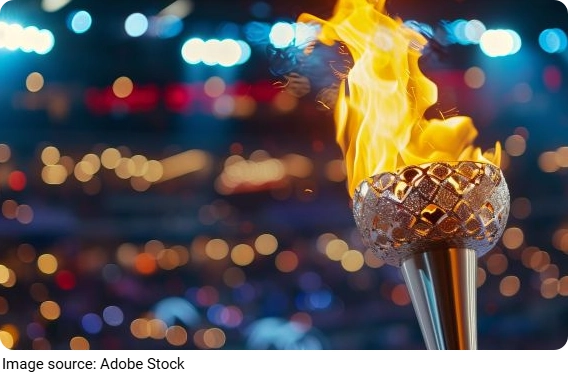Olympics Still Matter

Have you ever found yourself glued to the TV, rooting for a swimmer shaving a hundredth of a second off a world record, or a gymnast flipping through the air as if gravity were just a suggestion?
It's moments like these that keep the Olympic Games pulsing in our collective imagination. But while many know about the dramatic torch-lighting or the parade of nations, few realize how much the Olympics have evolved—and why their story is still so relevant today.
Ancient Beginnings: Sacred, Gritty, and Remarkably Simple
Let's hit rewind—way back to 776 BCE, when ancient Olympics first kicked off in Olympia, Greece. These games weren't just about athletic prowess; they were spiritual festivals held in reverence of Zeus. It's fascinating to think that, in those early years, the entire competition revolved around a single footrace—the stadion, roughly 200 meters long. No elaborate opening ceremonies, no dazzling fireworks—just the raw thrill of individuals testing their limits on a sunbaked track.
1. Unified Rules? Not Quite:
With no standardized rules or international committees, local traditions ruled. Events gradually expanded to include wrestling, boxing, discus, and chariot racing, but for centuries the Olympics stayed uniquely Greek—no women allowed, and certainly no international flair.
2. Winners Were Legends:
To win at Olympia wasn't just athletic glory; it secured a hero's welcome at home, often with life-changing privileges like free meals, song tributes, and artistic commissions.
3. Interrupted Legacy:
Remarkably, the ancient games survived for over a millennium before being suppressed in 393 CE, a victim of shifting priorities as sacred and state winds changed.
Rebirth in Modern Times: From Vision to Spectacle
For 1,500 years, the Olympic flame was extinguished—until one determined historian, Pierre de Coubertin, reimagined the games for a fresh era. In 1896, Athens hosted the first modern Olympics, inviting just 13 countries to compete in 43 events. Fast forward to the 21st century, and things look wildly different.
1. Inclusivity Grows, Step by Step:
While early modern games echoed the exclusionary spirit of ancient times, barriers steadily broke down. Today, nearly every nation participates, and there's a constant push for broader gender equality and new disciplines.
2. A Platform for More Than Sport:
The Olympics became fertile ground for showcasing technological innovation (think TV broadcasting and instant global connections), celebrating multiculturalism, and even driving social change through powerful athlete stories and symbolic gestures.
3. Commercialization and Challenges:
Stadiums that cost billions, mega-sponsors dotting every banner, and ticket sales spiraling—these realities have both empowered and complicated the Olympic machine. Yet, this evolution brought the games to billions, turning them into the biggest show on Earth.
The Deep Shift: Human Connection Over Pure Competition
Here's what often goes unnoticed: while medals and national pride make headlines, the Olympics have quietly redefined what sport means in society. The games now offer a rare opportunity for genuine cross-cultural appreciation and—for moments at least—a break from all the divisions that color our daily lives.
1. Sharing Universal Stories:
Strangers from opposite ends of the world suddenly find themselves cheering for the same underdog, moved by a shared human struggle and triumph.
2. Inspiring New Generations:
Every child inspired to run faster, jump higher, or dream bigger because of a televised performance is a testament to the enduring legacy of the Olympics.
3. Raising Voices Beyond the Arena:
Medalists increasingly use the global stage to highlight issues like inclusion, accessibility, and health—sparking conversations that ripple far beyond the closing ceremony.
Looking Forward: The Olympic Spirit in a Changing World
No one can predict future twists: How will technology further reshape competition? Can the games remain accessible, sustainable, and meaningful as they grow even bigger? Experts and fans alike debate these questions, but one thing's clear: the Olympics are no relic. They're a living experiment—a mirror for each era's values, conflicts, and hopes.

And maybe that's what keeps them fresh, relevant, and—most of all—something we want to root for, every four years and every day in between.
So, next time you watch an Olympic event, consider this: it's not just about chasing gold. It's about centuries of evolution—and the timeless urge to push, strive, and connect. What resonates with you most about the Olympic journey? Have you been inspired, surprised, or challenged by a particular moment? We'd love to read your thoughts and stories—because, after all, you're now a part of this remarkable legacy too.


